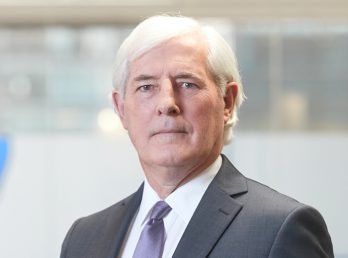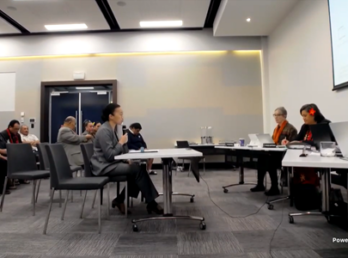Are you really a wholesale investor and what does it mean if you become one? articles
Date
20 Apr 2023
Related Expertise
Investing in securities and financial products such as managed funds, shares and investment schemes can be a complex and risky process, which is why New Zealand has strict rules in place to ensure that investors are adequately informed and protected. These are mainly contained in the Financial Markets Conduct Act 2013 (FMCA).
Various investment offers promise attractive returns but also state that they are only open to “wholesale investors”. Does that mean that these investments are better value and that you should try to “make” the wholesale category? Not necessarily!
In this article we explore what it means to be a “wholesale investor” (sometimes referred to as “eligible investor”) and what to be aware of when seeking to invest in a wholesale investment.
What are wholesale investors?
A wholesale investor is an individual or entity who meets certain criteria which demonstrate that they have sufficient experience and knowledge in financial markets to make informed investment decisions.
The FMCA defines six main categories of wholesale investors:
- Investors who invest a minimum of $750,000;
- Government agencies;
- Large investors (e.g. investors with net assets of at least $5 million);
- Investors that meet certain investment activity criteria (e.g. own a portfolio of financial products of a value of at least $1 million);
- Professional investment businesses; and
- Eligible investors who certify that they have sufficient investment experience to assess the merits of the investment.
The last category is probably the most common.
According to the Financial Markets Authority (FMA), wholesale investments are designed to allow expert investors with experience and access to specialised advice and research to make investments without requiring disclosure designed to inform and protect retail investors.
What is the benefit of a wholesale investment?
The primary benefit of being a wholesale investor is access to a wider range of investment opportunities that are not available to retail investments where full disclosure and sometimes a statutory supervisor is required; that is, investments where extra compliance and cost is necessary, often meaning that those smaller investment opportunities are too costly to provide in that form.
The wider range of investment opportunities however comes with fewer protections for investors, for example:
- Wholesale investments do not require a Product Disclosure Statement (PDS) which means that the issuer is not required to produce a document that sets out the key characteristics and risks of the investment in clear, concise and effective language, written for a non-expert investor. This also means that the investor does not receive regular updates about the ongoing performance of the investment;
- Wholesale investments further are not required to offer their investors access to a free independent dispute resolution scheme if the investor has problems with the issuer and wants to make a complaint;
- A wholesale investment often does not have a licensed supervisor (which is an entity licensed and appointed to ensure that compliance processes are followed and that decisions are made in the interests of investors) which would be the case for managed investment schemes and debt securities such as bonds which must have a supervisor if they offer their products to retail investors.
There is however no difference in relation to fair dealing. Issuers of retail as well as wholesale investments must comply with the fair dealing requirements of the FMCA. This means that the issuer must not:
- Engage in misleading or deceptive conduct in relation to the offer;
- Make false or misleading statements in its offer documents or advertising;
- Make unsubstantiated representations.
Should you seek to become a wholesale investor?
As mentioned above, issuers are trying to attract investors by advertising high returns. While this may sound attractive, the question you should ask yourself before investing in a wholesale investment is whether you are experienced enough to understand what you are investing in, and informed enough to assess the risks and at the same time whether you are comfortable with the fewer protections you will receive with the offer.
This is even more important considering that it is not uncommon for issuers to accept investors as wholesale investors when in fact they do not technically qualify. The purpose of having a wholesale investor category is to protect the general public from investments with potentially higher risks that they are not able to adequately assess due to their lack of experience. However, not all issuers respect this difference and seek to use the wholesale investor category to cut compliance obligations, sometimes relying on an assumption of ‘close business associates’ or ‘friends and family’ qualifications from previous legislation which are not in the FMCA.
The FMA recently conducted a review of wholesale investor disclosure practices by licensed financial service providers. The review found that some providers had inadequate processes in place to ensure that clients were correctly classified as wholesale investors. The FMA also found that some providers were relying on self-certification by clients without conducting sufficient due diligence to confirm their eligibility as wholesale investors.
In addition, the FMA found that several issuers of wholesale offers who mistakenly considered they were not bound by the requirements for a PDS, advertised high fixed returns and downplayed risks by making misleading references to guarantees and securities. This was for example the case with the:
- Direction order to Du Val Group NZ Limited and Du Val Capital Partners Limited in 2021 to remove advertising material likely to be misleading;
- The warning issued to Du Val Capital Partners Limited and Du Val Group NZ Limited in March 2023 for engaging in misleading or deceptive conduct; and
- A stop order to The One Management GP Limited in May 2022 for communications in relation to the offer for being likely to mislead or confuse prospective investors.
Unfortunately, by the time such stop orders and warnings are issued, your investment might already be at risk. It is therefore crucial to find financial advisers who take their obligations under the FMCA seriously and to make sure that you understand the investment and are in fact a wholesale investor.
If you are an issuer, make sure you follow the regulatory requirements such as:
- Making clear that your offer is open to wholesale investors only;
- Following the disclosure requirements for wholesale offers;
- Ensuring the correct certification process for wholesale investors is followed. It is important to be aware that issuers cannot rely on certificates where they know an investor did not in fact have any previous experience that is useful to assess the transaction or where the stated experience is not relevant for the investment for which they are signing up;
- Complying with the fair dealing obligations (ensure that any material or conduct is not or is not likely to be misleading or deceptive, or unsubstantiated).

What you should do if you signed the eligible investor certificate but may not have the required experience?
It is an offence to give a certificate knowing that it is false or misleading in a material particular. The penalty for a breach of this requirement is a fine not exceeding NZ50,000. The FMA is currently more active in investigating the use of certification by issuers as well as the confirmation of certification by lawyers, accountants and advisers. In October 2022 the FMA warned several property scheme issuers about non-compliant practices around certification. The FMA in its Media Release stated:
“The FMA’s most significant findings related to the use, confirmation, and acceptance, of eligible investor certificates¹. The FMA found some certificates were not confirmed by financial advisers, accountants or lawyers (as is required), while other certificates were confirmed – and accepted by offerors – with no grounds or the grounds did not relate to the matters certified. Insufficient grounds included the sale of a farm, owning a term deposit or KiwiSaver, having a rental property portfolio, making substantial profits from selling houses, and “experience in investment.”.
The FMA is likely to remain very vigilant regarding proper certification which needs to be better understood by issuers, investors and their advisors.
If the issuer itself did not follow the correct process and was not able to rely on the certificate and was therefore required to provide investors with a PDS, then those investors have a right to withdraw from the investment. However, the right to withdraw can only be exercised within the earlier of 6 months after the investor knows, or ought reasonably to know that they should have received a PDS, and 12 months after the financial product was issued or transferred.
Compliance with the FMCA is strict and complicated for both investors and offerors and the consequences of getting it wrong can be significant. We can assist if you are concerned that you may have given or accepted a false certificate in order to qualify as a wholesale investor or are otherwise concerned that your investment may not meet the wholesale offer requirements.
Subscribe
Get insights sent direct to your email.






















